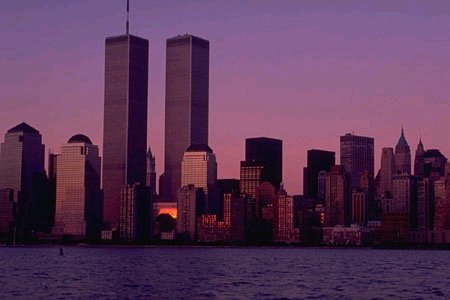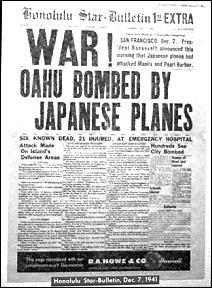15 Months Ago
15 Months Ago

A few nights ago, in discussion with a friend, we were speaking of when he went to meet a business acquaintance of mine, another good friend. I'd tried to open a door for him, making an introduction, getting people together. Turned out the job didn't happen, but they both felt a good contact was made, with any number of possibilities ahead at another time.
Speaking of this we were talking about the exact lower Manhattan location of my pal's office. "Two blocks from .. uh.. around the corner from-- er, right by--" I couldn't get the words out of my mouth. Nor could he. For each of us it was on the tip of our tongue, but just not getting said.
WORLD TRADE CENTER!, I finally said. "Yeah, Ground Zero," he said, immediately thereafter.
We looked at each other for a moment, both just sort of stuck on the statements, the preceding inability to utter them.
"I called it The World Trade Center, like it was still there," I said. "Yeah, " he replied, "I think of it like the towers are still there, too."
For both of us, and for many others like us in the New York area, it is just hard to accept or imagine that the towers are gone, the whole WTC not there anymore.
Today marks 15 months to the day since the attack on the World Trade Center, the day the Twin Towers fell. From 9/11/01 to 12/11/02. Just four days ago the solemn observation, the anniversary date of the bombing of Pearl Harbor was acknowledged.

As a small child a great impact was made on me regarding the significance of Pearl Harbor Day. I remember the observations and pronouncements made on each December 7th Ö memories of the lives lost in that attack Ö a surprise and unprovoked attack Ö an event that so roused the nation that droves of men dropped everything and enlisted in the armed forces to fight the enemy, protect and serve the country, face the adversaries, risk life and limb in defense of what we held dear.
It was as though there was but one, single, uniform attitude: the US was attacked, we then were fully engaged in the world war. A call to arms was not necessary, as a nation of recruits and enlistees responded in massive numbers. This was a cause worth fighting for, a righteous endeavor, a veritable, solemn, necessary cause.
There was never a question of the moral or spiritual veracity ñ the world was at war, our sailors were attacked, we were thus and thence a part of the global conflict.
Every year as Pearl Harbor Day came, the observances would occur. The papers and broadcast news (back then radio news had more coverage and listenership than TV ñ which tells you how old I am) were filled with coverage of the events of the day. Tales of losses, of the men, of the shock of the day, the reaction immediately thereafter, FDRís speech ì(A Date Which Will Live in Infamyì) became so real, so etched into oneís mind, that even those born after then could feel, sense, and experience the import and momentousness of the day, the events of the day, the national outcry.
Korea was a different story, with MacArthur playing politics on a public stage and Eisenhower inheriting a war effort he sought to end and prevent from recurrence. Remember, it was the Republican and WWII war hero Ike who warned against the coming ìmilitaryindustrial complex.î These were Ikeís words in his farewell speech to the nation on January 17, 1961, three days before the inauguration of John F. Kennedy:
ìIn the councils of government, we must guard against the acquisition of unwarranted influence, whether sought or unsought, by the militaryindustrial complex. The potential for the disastrous rise of misplaced power exists and will persist.î
Some consider this speech the seed from which an anti-war movement was conceived; later fertilized by the post-war baby boomer children going off to Southeast Asia yet again. This time not too very far from Korea, in the little known country of Viet Nam, a former French colony (sanitized versions sometimes call it a French Protectorate), divided into two warring geographical factions. VietNam had become an independent state in 1954. From the history section of the Asian-Nation website:
Although Viet Nam was now free and independent, it again became divided as negotiators from France, the U.S., China, the Soviet Union, and Viet Nam agreed to divide the nation in half at the 17th parallel. The communists took control of the Democratic Republic of Vietnam in the north while the nationalists controlled the Republic of South Viet Nam in the south. The agreement also called for general elections in 1956 to unify the country. However, these elections never took place. Instead, a new and even more devastating war emerged.
That devastating war included the demise of over 50,000 US troops. The babies of those who fought the second World War and some of those born to Korea veterans were once again being sent to battle, to wage war.
By the time there was a war in Viet Nam, with American involvement, it was a different world. The body bags a nightly TV news reality. Neighbors, nephews, classmates, sons and husbands were wounded, or worse, dying in this conflict. Gone were any sense of the emotional outpouring of patriotism and earnest zeal to join the fight and protect the country, the freedoms, the rights enjoyed by a free country, that had been the case in WWII.
There was no Pearl Harbor to incite such chauvinism.
A generation of post-war children had come of age in a time of economic boom. The world seemed bent on providing American boomer children with opportunity, education, access to their aspirations. Father Knows Best, The Cleavers, The Nelsons .. all those television family units of varying sizes and shapes were chock-full of progeny on a course to enjoyment of a better life in a better time, enhanced by the products of fruitful minds, supported by the boom times and a nation entirely focused on building a better world for the next generations.
![]() So the antiwar movement grew out of this generation of children to whom a right of choice, a sense of entitlement, and a path of determination .. was second nature. The concept of fighting a war, going to battle, facing the "kill or be killed" situation -- in a conflict not of a threat to the US, not a declared war, either - there was no real and perceived enemy. Lyndon Johnson and Richard Nixon were perceived by many as perpetrating a political and financial war, at the expense of American lives.
So the antiwar movement grew out of this generation of children to whom a right of choice, a sense of entitlement, and a path of determination .. was second nature. The concept of fighting a war, going to battle, facing the "kill or be killed" situation -- in a conflict not of a threat to the US, not a declared war, either - there was no real and perceived enemy. Lyndon Johnson and Richard Nixon were perceived by many as perpetrating a political and financial war, at the expense of American lives.
Understood, the above is a very simplistic take on what is much deeper and more multi-faceted in scope.
The point, though, is the mood change.
September 11 is written about in many places as a new Day of Infamy. War is around the corner. The mood is much more pro-aggression, and anti-"them folk." There exists a concept of an enemy, a threat. Add to this a president who seeks a good old make-defense-some-money war, and who wants to avenge the dis given to his old man by Saddam...and war seems like a real plan for the ole boy in the big seat in the Oval Office.
To me it akes Al Gore seem a lot more like a level-headed guy, eh?
But the mood is seeming to move toward anger now. Retribution, vengeance. Not the solemn sense, pervading lives with a sadness and memory. That is reserved for those who lost friends and loved ones in NY, Washington, Pennsylvania, Oklahoma City. That sadness hangs and clings. But life all around just goes on. Those not personally touched have gained some distance. 15 months worth.